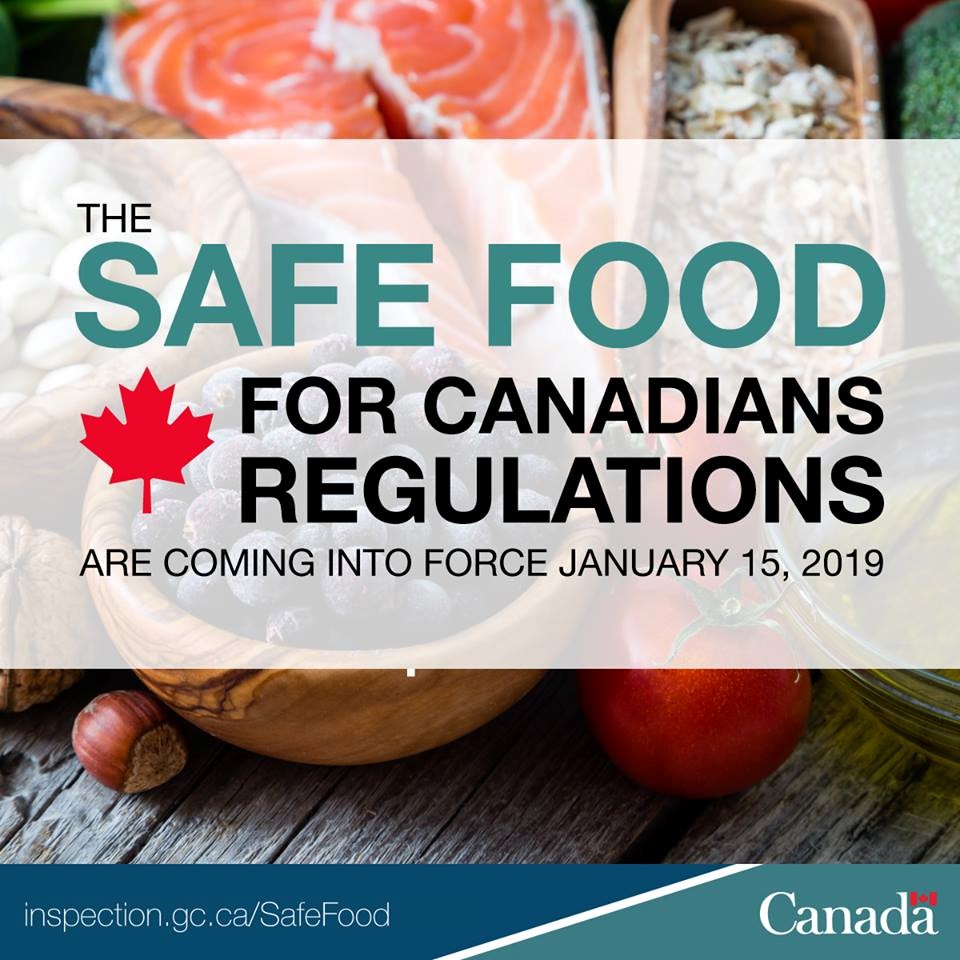
Canada’s Safe Food for Canadians Act and Safe Food for Canadians Regulations Come into Effect
On January 15, 2019, the Government of Canada’s new Safe Food for Canadians Act (“SFCA”) and Safe Food for Canadians Regulations (“SFCR”) came into effect across the country. The SFCA and SFCR are designed to streamline Canada’s existing food-safety regime, and consolidate fourteen food and beverage-related regulations into a single comprehensive set of regulations. It is critical that all businesses operating in this sector familiarize themselves with these changes and the additional legal compliance obligations they impose.
Is your business affected?
The SFCA and SFCR apply broadly to any food items or beverages intended for human consumption (including ingredients) that are imported, exported, or inter-provincially/territorially traded for commercial purposes, subject to some limited exceptions. It also applies to the slaughter of food animals from which meat products are to be exported or inter-provincially traded.
Of the multitude of new requirements the SFCA and SFCR place on businesses, three requirements in particular create substantial new compliance obligations on food and beverage companies:
Licensing
In accordance with the SFCR, the Canadian Food and Inspection Agency (“CFIA”) has created a new licensing regime applicable to any business engaged in, but not limited to, any of the following activities:
- Importing certain food products;
- Manufacturing, processing, treating, or preserving certain food products to be exported or sent across provincial/territorial borders;
- Grading certain food products to be exported or sent across provincial/territorial borders;
- Packaging and labeling certain food products to be exported or sent across provincial/territorial borders;
- Slaughtering food animals to be exported or sent across provincial/territorial borders; and
- Storing and handling meat products in their imported condition for inspection by the CFIA.
The SFCA and SFCR regime applies to different types of businesses at different times, depending on the nature and size of the business in question. As of January 15, 2019, businesses in the meat, dairy, and fish and seafood sectors, among others, fall within this regime. Businesses in the food additives and alcoholic beverages sectors, among others, will become subject to this regime on July 15th, 2020.
For specific information on which activities and which food products are subject to the new licensing regime, the CFIA has created an interactive tool allowing businesses to more easily assess whether they are required to obtain a license. The new licenses cost $250, and will be valid for two years.
Preventative Controls
The SFCR introduces a host of new measures aimed at controlling risks to Canada’s food supply while also ensuring the humane treatment of food animals.
A large host of companies classified as “food businesses” (with some limited exceptions) are now required to prepare, keep, and maintain a preventative control plan and procedures to help ensure that food products are safe for human consumption and conform to Canada’s consumer protection and animal welfare requirements.
Each preventative control plan and set of procedures will vary from business to business, and no two plans will be identical. Many preventative control plans will however need to include, among other things, a hazard analysis describing the biological, chemical, and physical hazards that may lead to contamination of the food products in question. They will also need to describe the control measures in place to address hazards identified as part of the business’s hazard analysis, all “critical control points” at which the application of control measures is essential to contain hazards or contamination, procedures in place to ensure the preventative control plan has been implemented and is effective, procedures in place to respond to complaints or contamination, and proof that the plan has been implemented as described.
For further information regarding which businesses may require a preventative control plan, and what must be included in this plan, the CFIA has prepared an interactive tool to help advise businesses.
Traceability Requirements
A wide variety of food businesses, including those that import, export, distribute, manufacture, process, treat, preserve, grade, store, package, and label food products will now be required to maintain proper records allowing for the tracing of all food products they have interacted with one degree of separation backwards (to the seller of the food product in question) and one degree of separation forwards (to the purchaser of the food product in question). This requirement is intended to permit the CFIA and other organizations to conduct effective and timely food safety investigations and recalls.
It is worth noting that “food service operations” (such as restaurants, buffets, and cafeterias) are exempt from these traceability requirements, but retail food businesses (such as supermarkets, grocery stores, bakeries, and butcheries) are required to trace the food backwards to their immediate supplier (but not forwards to the consumer who purchases the food item in question).
Businesses that are subject to these new traceability requirements may also be subject to additional traceability-specific labelling requirements.
To discern if your business may be subject to these traceability requirements, consult the interactive tool prepared by the CFIA.
Is your business compliant?
In addition to the items listed above, the introduction of the SFCA and SFCR create other new obligations for businesses, including new packaging, grading, and labeling requirements.
Sotos LLP has assisted countless food and beverage businesses remain compliant with Canada’s changing legal landscape. For further information on the content of the update, and to ensure your business is meeting the requirements of the SFCA and SFCR, contact Jason Brisebois at (416) 572-7323.
